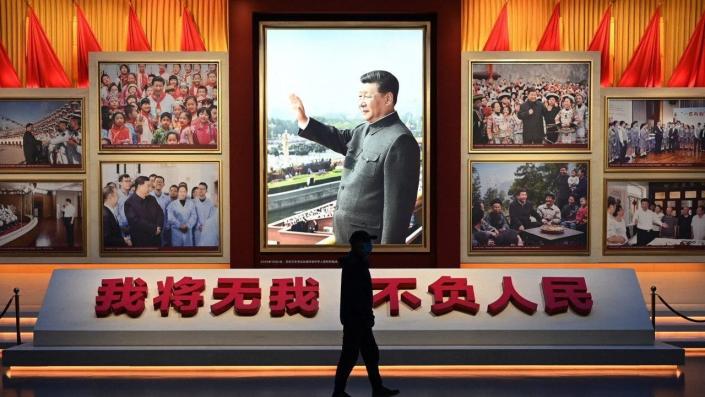Chinese President Xi Jinping on Tuesday advised his national security team to prepare for the worst-case scenario amid rising threats – both internal and external – against the nation.
The comments, carried by the official Xinhua news agency, came during a meeting of the Chinese Communist Party’s National Security Commission.
Xi said “the complexity and difficulty of the national security issues we currently face have increased significantly.”
China must “adhere to outcome thinking and the worst-case scenario, and prepare for the major tests of high winds and choppy waves, and even perilous stormy seas”, he said. .
THE US GOVERNMENT SENT $1.3 BILLION TO CHINA AND RUSSIA FOR GENDER EQUALITY, CAT EXPERIMENTS AND RESEARCH AT THE WUHAN LABORATORY
The Beijing meeting discussed the need for “dedicated efforts to safeguard political security and improve governance of internet data security and artificial intelligence”, the official Xinhua news agency said.
READ ON THE FOX NEWS APP
Xi, who is China’s head of state, army commander and chairman of the party’s National Security Commission, called on the meeting to “remain keenly aware of the complicated and difficult circumstances facing national security. “.

China needs a “new development model with a new security architecture”, Xi Jinping reported.
Meanwhile, party leaders have reportedly warned of the risks posed by advances in AI while calling for stronger national security measures.
China is already devoting vast resources to removing any perceived political threat to party dominance, with spending on police and security personnel exceeding that on the military.
THE CHINESE “DEBT TRAP” PARATRITES POOR ECONOMIES AND ENDANGERS US NATIONAL SECURITY
Beijing has cracked down on its tech sector in a bid to reassert party control, but like other countries, it is scrambling to find ways to regulate rapidly developing AI technology.
The latest party meeting reinforced the need “to assess potential risks, take precautions, protect people’s interests and national security, and ensure the safety, reliability and ability to control AI “, reported the official newspaper Beijing Youth Daily on Tuesday.

China warned as early as 2018 of the need to regulate AI, but has nonetheless funded a vast expansion in the field as part of efforts to take a lead in cutting-edge technologies.
A lack of privacy protections and tight party control over the justice system have also resulted in near-total use of facial, voice and even walking recognition technology to identify and detain people deemed to be threatening, especially political dissidents and religious minorities.
The risks of AI are primarily seen in its ability to control autonomous robotic weapons, financial tools, and computers governing power grids, health centers, transportation networks, and other key infrastructure.
China’s unbridled enthusiasm for new technologies and its willingness to tinker with imported or stolen research and stifle investigations into major events such as the COVID-19 outbreak heighten concerns about its use of technology. ‘IA.
The Associated Press contributed to this report.

